Today marks two years since the Me-Too movement flooded Westminster. And yet, after thirty-six MPs were exposed in a leaked document published by Guido Fawkes, not one of them has been sacked. An independent inquiry was started at the time, but only last week did it deliberate on the first case, Labour’s Lord Stone – who was accused of sexual harassment, racist bullying and transphobia.
The two year wait to see any semblance of repercussions against the accused men is disappointing, but sadly for most women, unsurprising. It’s why the Women’s Equality Party refuse to wait for a clearly flawed system to hold these men to account. They’ve stepped in to unseat all male MPs accused of harassment and violence.
Four women of the WEP stand against five male MPs: Serena Laidley against Kelvin Hopkins – currently under investigation for sexual harassment. Jenn Selby against Mark Field, who publicly grabbed a woman by the neck during a peaceful protest. Eljai Morais against Charlie Elphicke, charged with three counts of sexual assault. And finally, Gemma Evans against Ivan Lewis who now stands as an independent MP after quitting the labour party before his sexual harassment investigation could conclude.
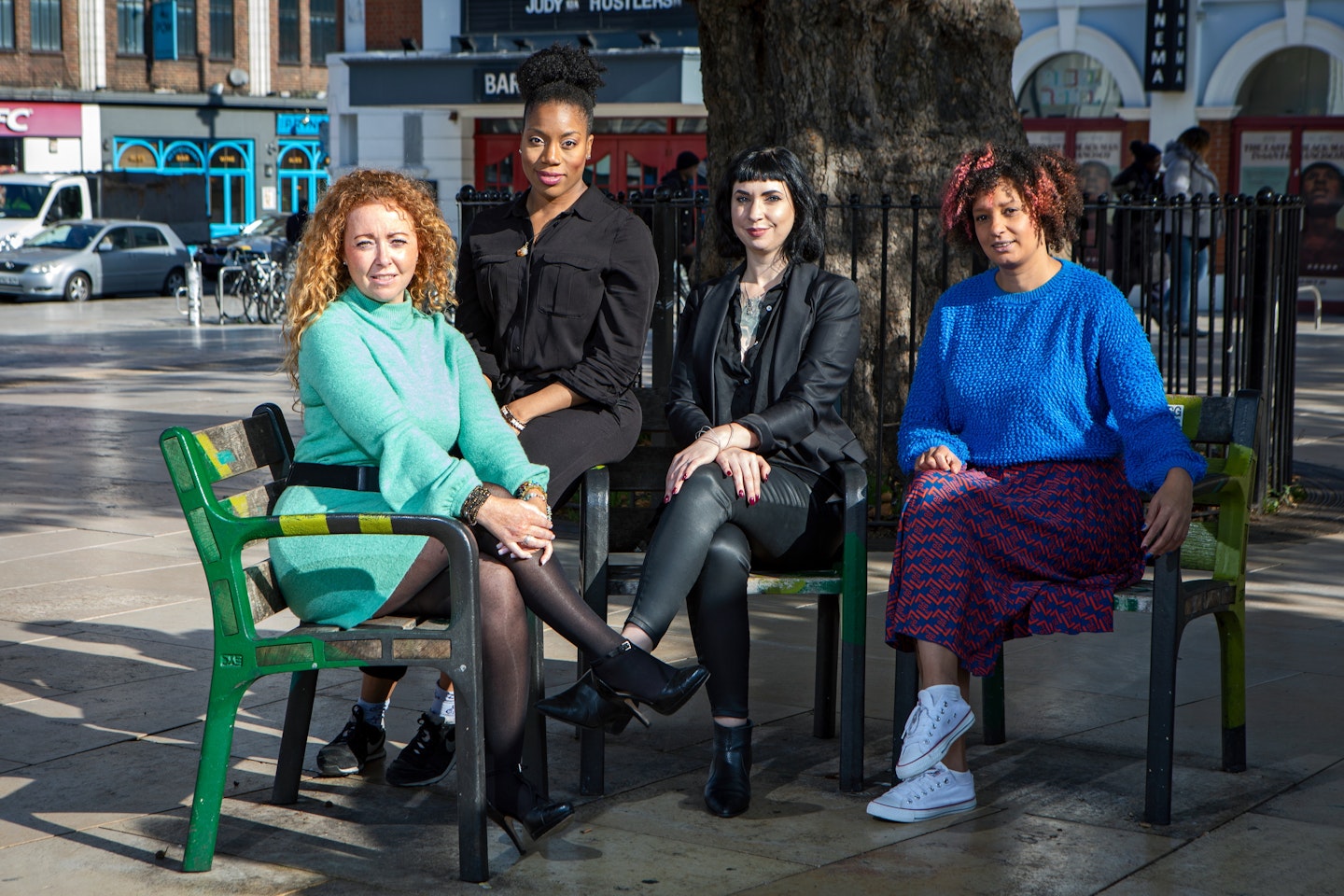
Today Laidley succeeded in her goal to unseat Hopkins, joining Selby who too unseated Mark Field last week. Field's decision not to run again came after a protest by the WEP saw women stop him from entering Grosvenor Hotel, where he was set to discuss re-election. The women, wearing red dresses as an ode to Janet Barket – the woman he grabbed – chained themselves together with cable-ties. Hours later, he released a statement issuing his intention not to stand again.
‘He said it's because of Brexit,’ Selby tells Grazia over the phone. ‘We all know it's not, it’s because we made his position completely and utterly untenable. The public agree with us that grabbing a woman by the neck and facing no repercussions is wrong.’
Field was meant to face consequences, of course, before Boris Johnson announced parliament would scrap the investigation into his behaviour. But it’s decisions like that which perpetuate this willful ignorance around tackling abuse - as it demonstrates that men can commit acts of violence against women and not only keep their job, but for MPs, maintain their power over policies that impact our lives.
‘We will no longer accept men representing us who have been instrumental in those sorts of abuses,’ Selby says. ‘It's not right. And it's not right that they get to vote on policies and laws that directly affect the protection of women and girls because actually there's a conflict of interest in them doing so.’
This campaign was born out of a frustration of men never being held accountable
And so, the women will continue to stand in constituencies with MPs accused of harassment or violence, and stage excellent protests while doing so. ‘Really, this campaign is born out of a frustration of men never being held accountable,’ Selby continues, ‘but also out of a desperate need to move forward in ending violence and harassment against women and girls in this country.’
In attempting to unseat the men, the WEP has many different tools in their box. They have the women running against them, the loud protests that give constituents cause for concern, but they also have their negotiation powers. Because, the WEP are also in talks with Labour and Liberal Democrat candidates. They propose that if the Labour or Lib Dem candidates agree to their red lines on prioritising violence against women, the women running as WEP candidates will step down and give all their campaigning power to the party whom agrees.
So what are their red lines? They’re quite simple, really.
‘We need to change the law so that the constituents can sack their MPs if they're found guilty of assault or harassment,’ Selby says. ‘And we need to change those procedures that allow existing investigations to take two years, like they have so far.’
That means changing the Recall Act 2015 – which allows constituents to recall MPs if they’re found guilty of wrongdoing in certain criteria. The WEP want to extent this act to include MPs found guilty by parliament’s independent investigation process into sexual harassment and violence.
They also want more funding for domestic abuse services, but vitally, to also switch to a three-year funding model as oppose to the current one year operation.
‘At the moment the services don't know what they're getting from year to year,’ Selby says. 'It makes it really hard for them to plan what they're doing, how much staff they're having, what they need - it's almost impossible and it completely destabilizes the whole support network. A three-year rolling model of funding is a fairly obvious and easy fix, as far as we’re concerned.’
Their final red-line, at least for now, is one that would fundamentally change the gender pay gap: free universal childcare. ‘That’s from end of maternity leave up to school age,’ she continues. ‘So women can work if they want to without that burden of huge, huge childcare costs.’
Currently, one major contributor to the gender pay gap is that women are forced to take time out of their careers because childcare can be more expensive than their monthly earnings. With men more often out-earning women in families, it means women face an unfair burden of childcare, as it makes the most financial sense for the lowest-earner to take time off.
‘It’s a fully costed design that we’ve worked out, and that would be one of the best ways we can see to tackle it,’ Selby says.
Of course, she would love to do more should she become an MP. ‘Personally, I’d like to see a big overhaul of the criminal justice system particularly in the way that it deals with rape and domestic abuse.’
But that’s her ‘next trick’, she says – once the current task of unseating MPs accused of violence is over. What’s most inspiring about Selby though, and this whole operation, is that it’s actually working.
So often we see the abuses men get away with as a systemic, deeply engrained issue that cannot be altered through a few protests or a new MP. But the way these MPs are falling in the wake of the WEP campaign, it gives you real hope.
‘We know that Mark Field is gone but we've also seen an upsurge in their labor suspensions as well,’ Selby says. ‘So the campaign is having a huge effect on the selection process for this election, before it was even called. It's quite remarkable that while everyone's preoccupied with Brexit, this is all going on.
‘It’s a huge change that has never happened before,’ she continues. ‘We've seen that the Labor candidate in my area - Steven Saxby - has been suspended for sexual harassment. Obviously, we have an inside track of what is going on with most people, and that’s the message that I want to put out there to MPs and to candidates who are standing: we do know. Don’t think we don’t know because we do, even if we’re not public about it. And if we don't, we will find out and your parties will find out: expect yourself to be deselected in very near future.’
We will find out, your parties will find out and expect yourself to be deselected in very near future
Since the WEP having a 5-10% share of the vote in Westminster, that 'insider knowledge' quickly translates into negotiating power. Because, whichever party they support - aka whoever agrees to their red lines - will be that much stronger for their vote share.
'In an area like Westminster where it’s going to be a three way marginal split now between the Lib Dems, the Conservatives and Labour Party, we could swing it for them,' Selby adds. 'And we're aware of that, that works to our strength to be able to negotiate on these terms.’
Essentially, despite the doom and gloom of seemingly nothing changing since Me Too, there is actually hope that women behind the scenes are making real change for the rest of us. Whether it’s staging protests against MPs, negotiating with them or becoming them, the WEP is about to change our lives.
Read More: Inspiring female MPs and the incredible work they've done...
Inspiring Female MPs - Grazia (slider)
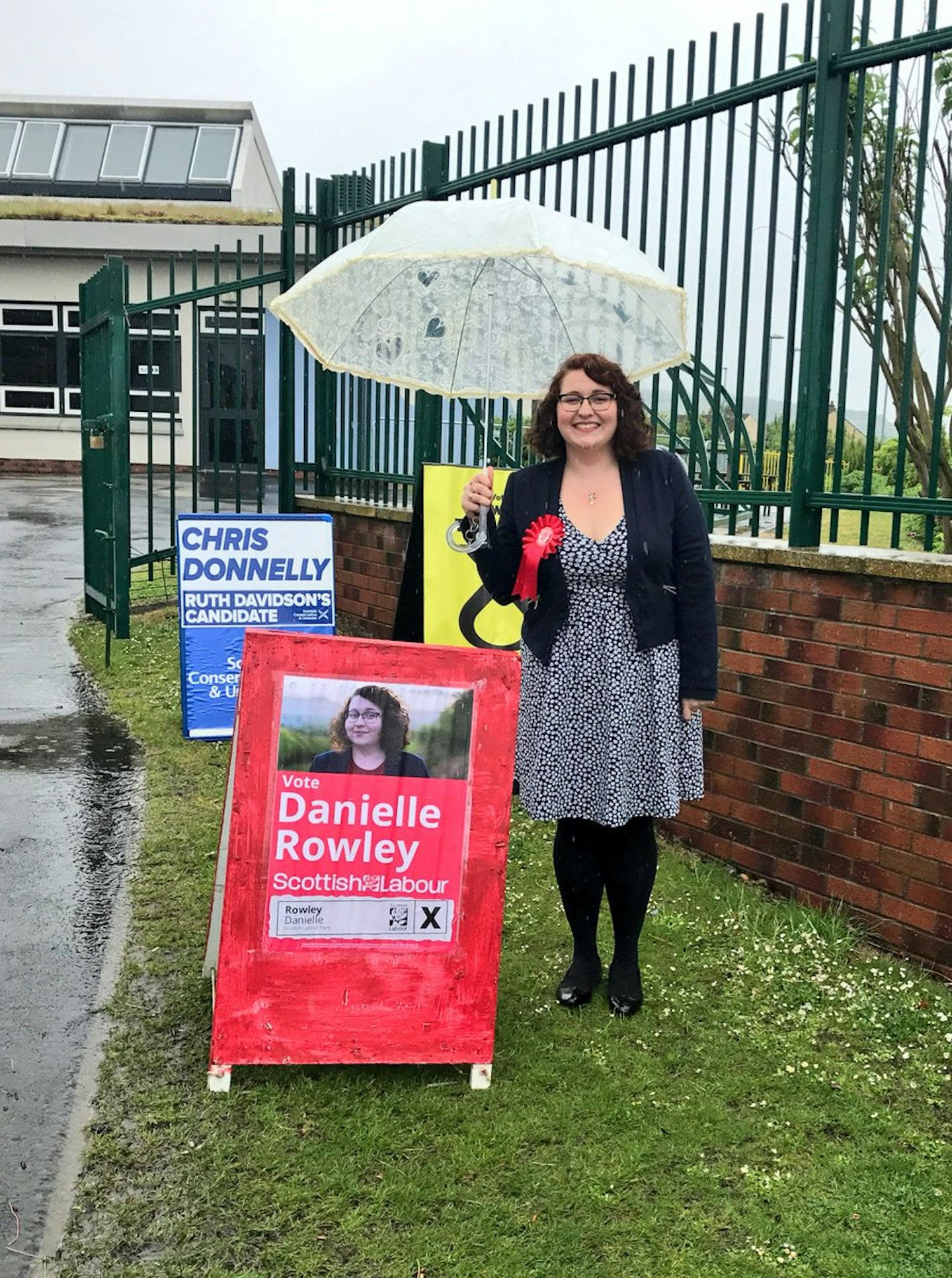 1 of 10
1 of 10Danielle Rowley, 28, Midlothian Scottish Labour MP
Speaking about her groundbreaking announcement, Danielle perfectly highlighted just how ridiculous it is that it's even a taboo to mention your period. She said on Twitter:'A lot of unexpected coverage of me talking about my period - which is great, but also highlights the need to talk about periods more openly.A woman mentioning her period shouldn't be such huge news - let's use this opportunity and work together to get to a place where it's not!'
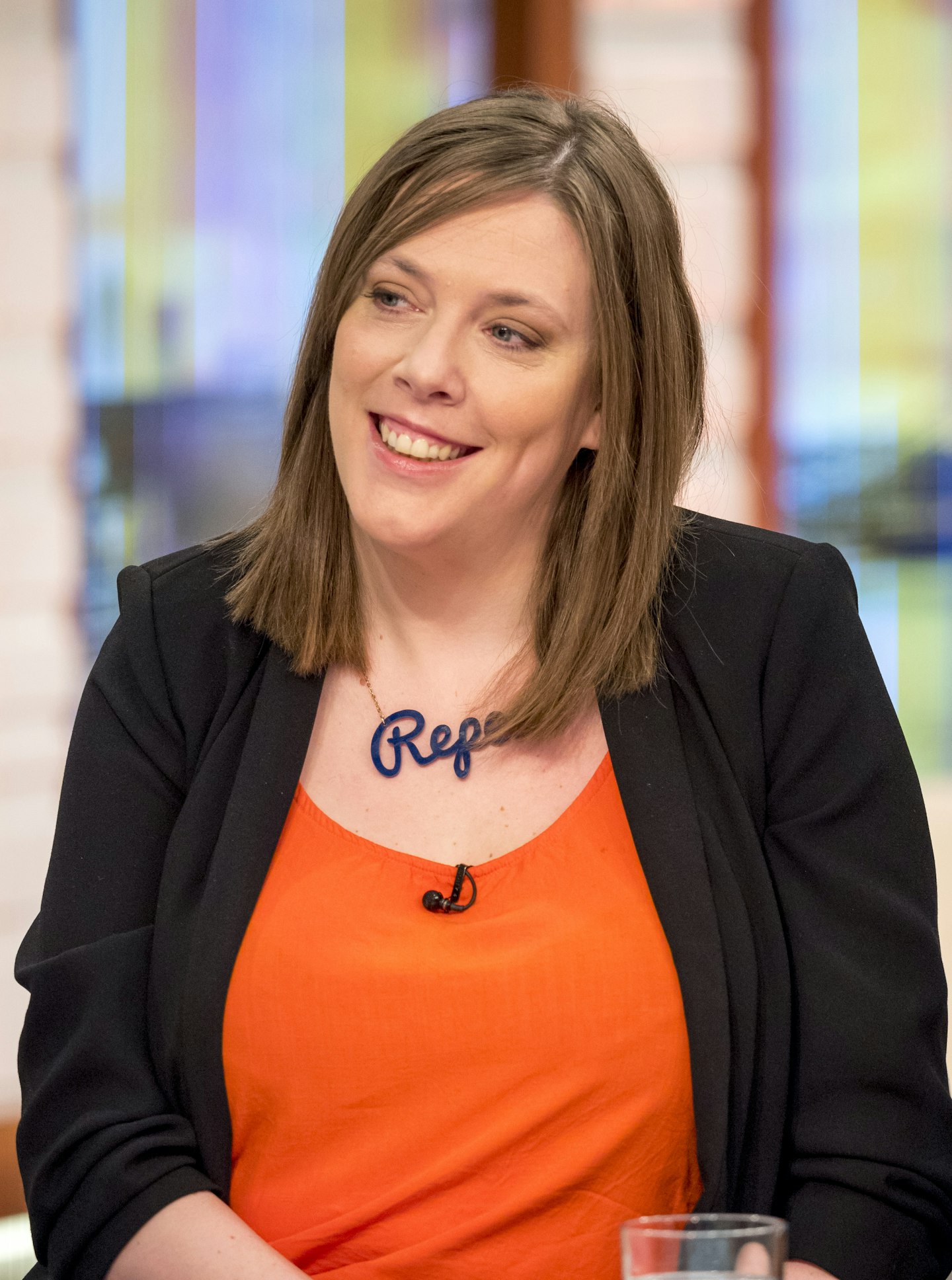 2 of 10
2 of 10Jess Phillips, 36, Birmingham Yardley Labour MP
Jess brought social media trolls to account when she called for those who post abusive messages online to lose their anonymity. The MP told parliament that she once received 600 rape threats in one night and is threatened with violence and aggression every single day online. The online community is so hostile towards women that Amnesty International have led a campaign calling for Twitter to take greater responsibility for preventing online abuse. Jess told the House of Commons that people should have to disclose their real identity to social media platforms, with hope that it would not only deter people from abusing women online but also enable us to hold them to account.
 3 of 10
3 of 10Heidi Allen, 43, South Cambridgeshire Conservative MP
Heidi, alongside Jess Phillips, shared an emotional account of her own abortion with parliament earlier this month. In an attempt to reform Northern Ireland's abortion laws, she told the Cambridge independent that she felt she needed to share her story:'I had intended to say it because I had a feeling nobody else would.'I thought it probably needed saying.'I suppose it is very easy to make issues like that just about procedure and legislation and words and policy but, actually, it is about people's lives.'Jess Phillips too opened up about her own abortion, also sharing harrowing stories from women in Northern Ireland who had terminated pregnancies.
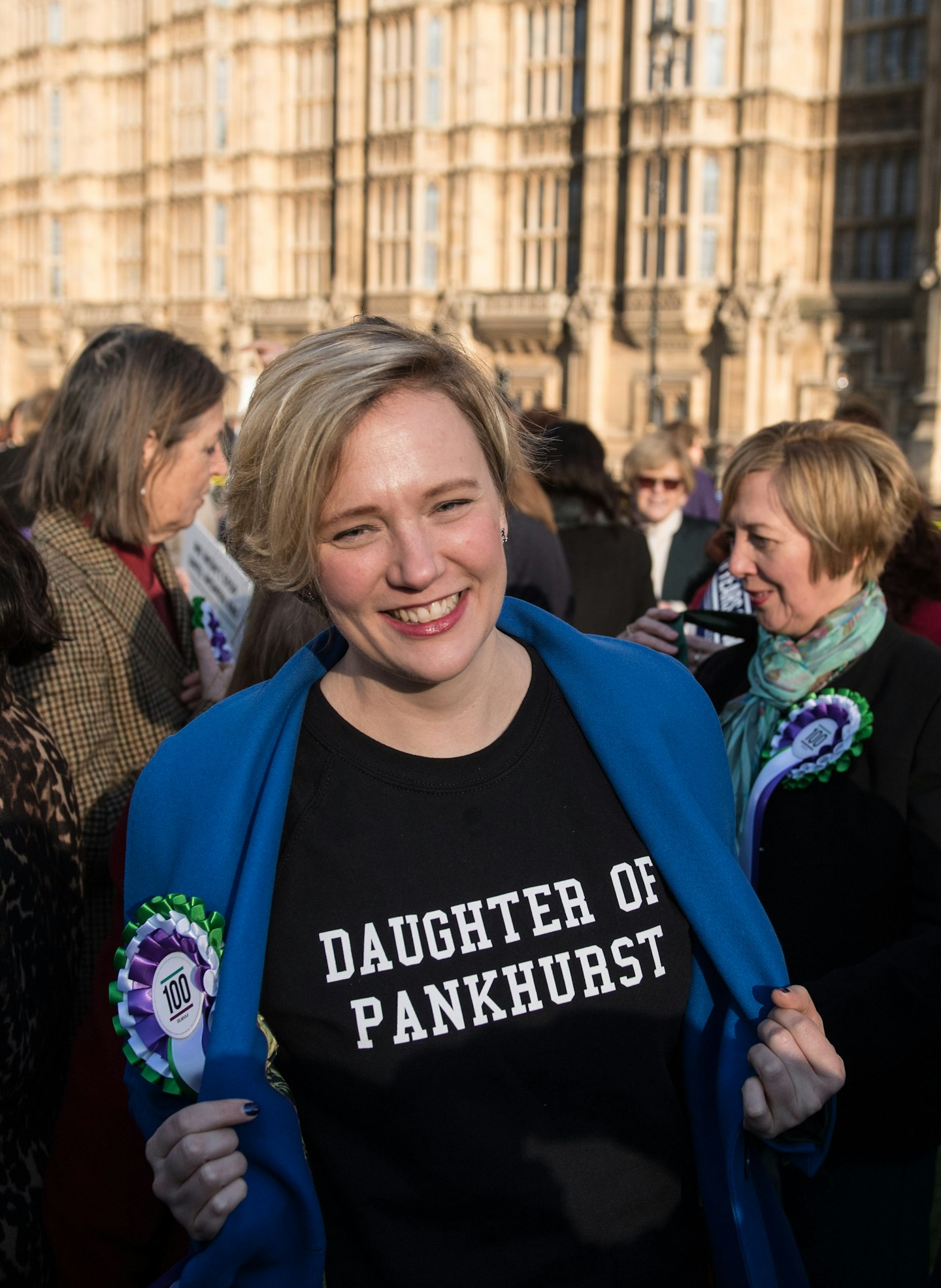 4 of 10
4 of 10Stella Creasy, 41, Walthamstow Labour MP
The original lead of cross-party calls for Northern Ireland's abortion laws to be brought in line with the rest of the UK's, Stella received tons of hate mail over her campaign to protect women's right to choose. It was in her call for debate over abortion that Heidi Allen and Jess Philips were able to talk about their own terminations.
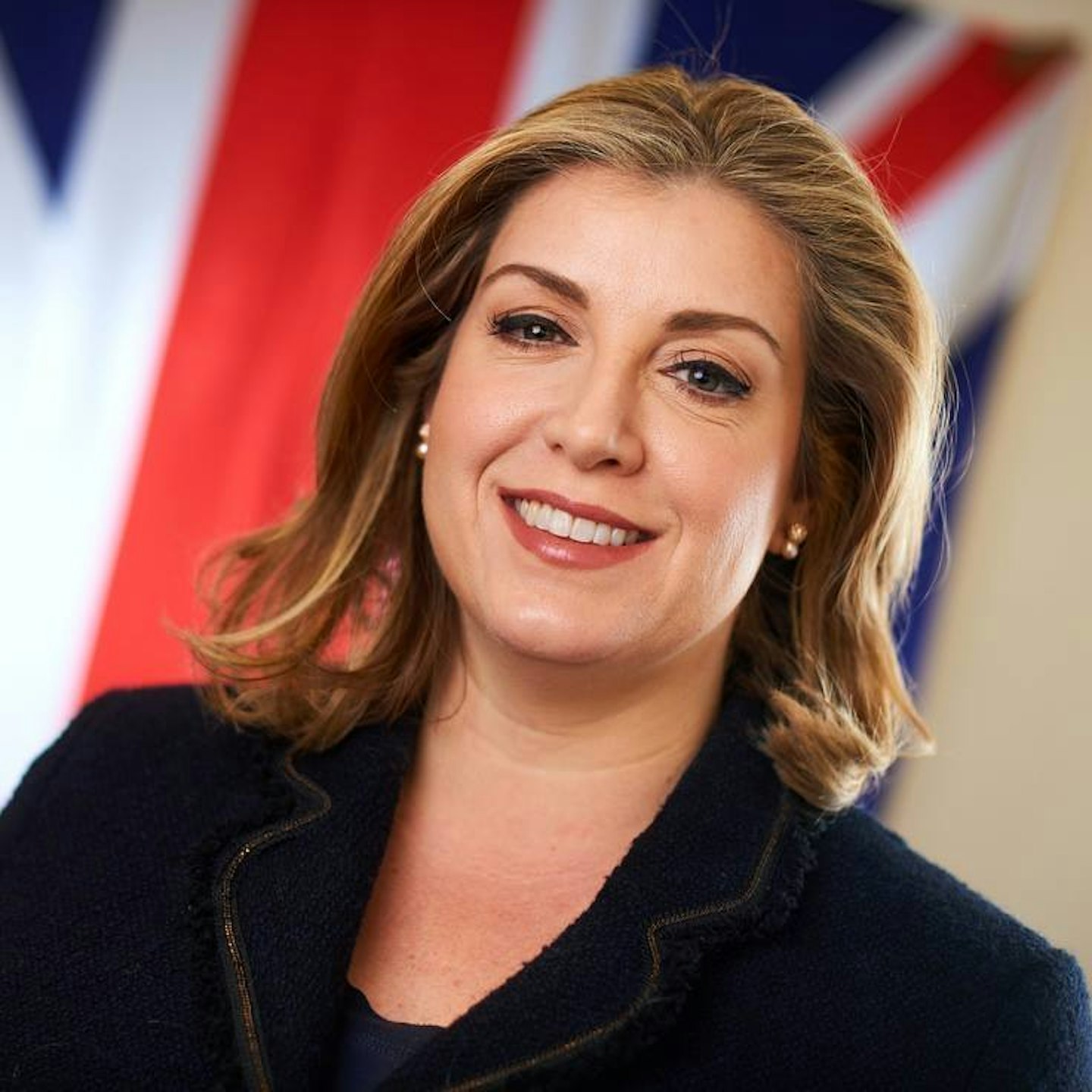 5 of 10
5 of 10Penny Mourdant, 45, Portsmouth North Conservative MP
The Minister for Women and Equalities, Penny Mourdant launched the National Action Plan on Women, Peace and Securitywhich calls for more women to be at the centre of the DFID's peace, security and humanitarian programmes. As secretary of state for international development, she has attempted to reform the aid sector by creating an independent safeguarding unit that prevents exploitation. This comes in the wake of a series of sex scandals against leading charities earlier this year.
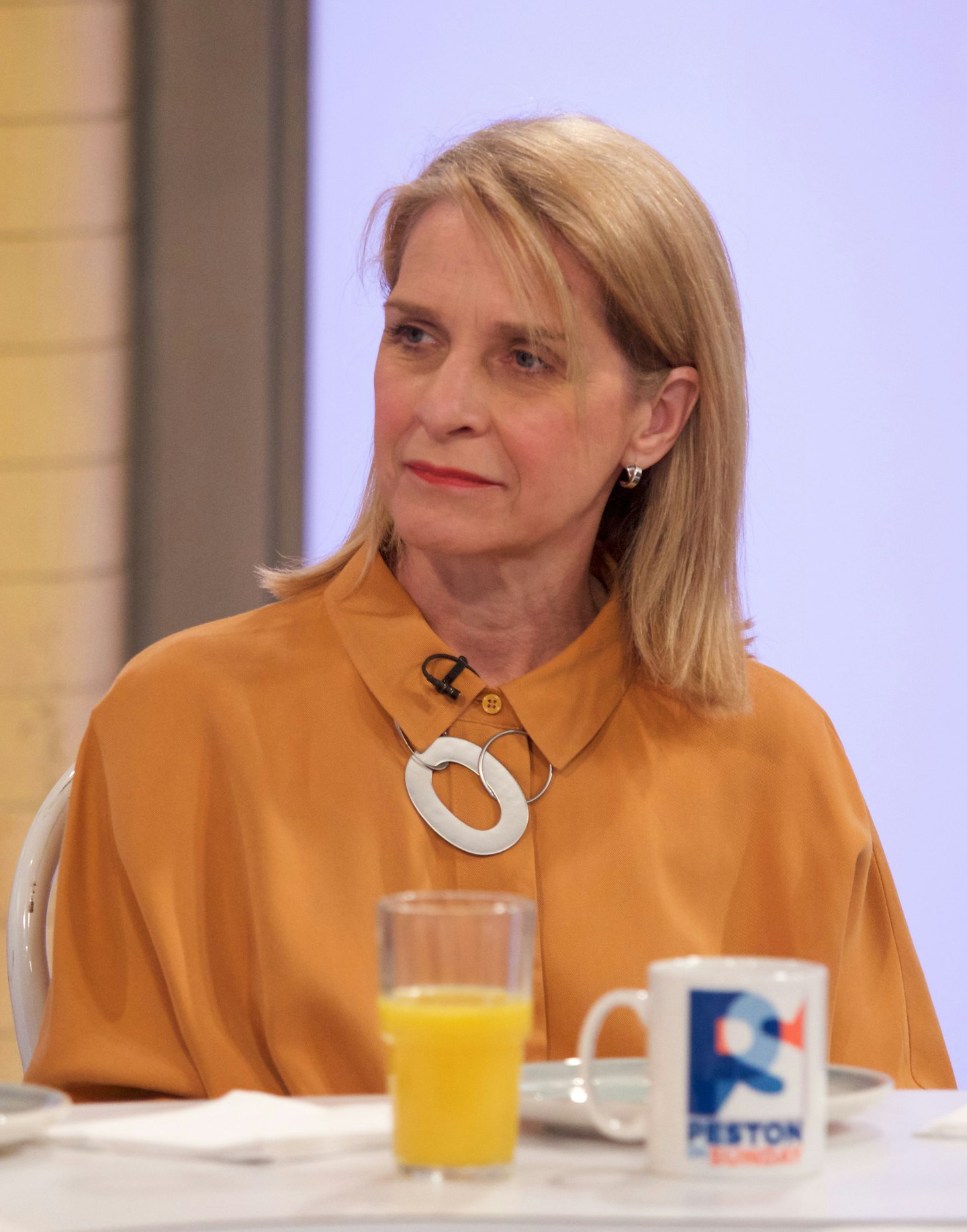 6 of 10
6 of 10Wera Hobhouse, 58, Bath Liberal Democrat MP
Wera Hobhouse brought Gina Martin's upskirting campaign to parliament as a private members bill set to outlaw the vile crime. While the bill was subsequently blocked by two male MPs, a third reading of the bill is set to continue on the 6th of July with Gina stating 'the Government Bill will become law as it'll get through the later stages more quickly and won't be objected to.'
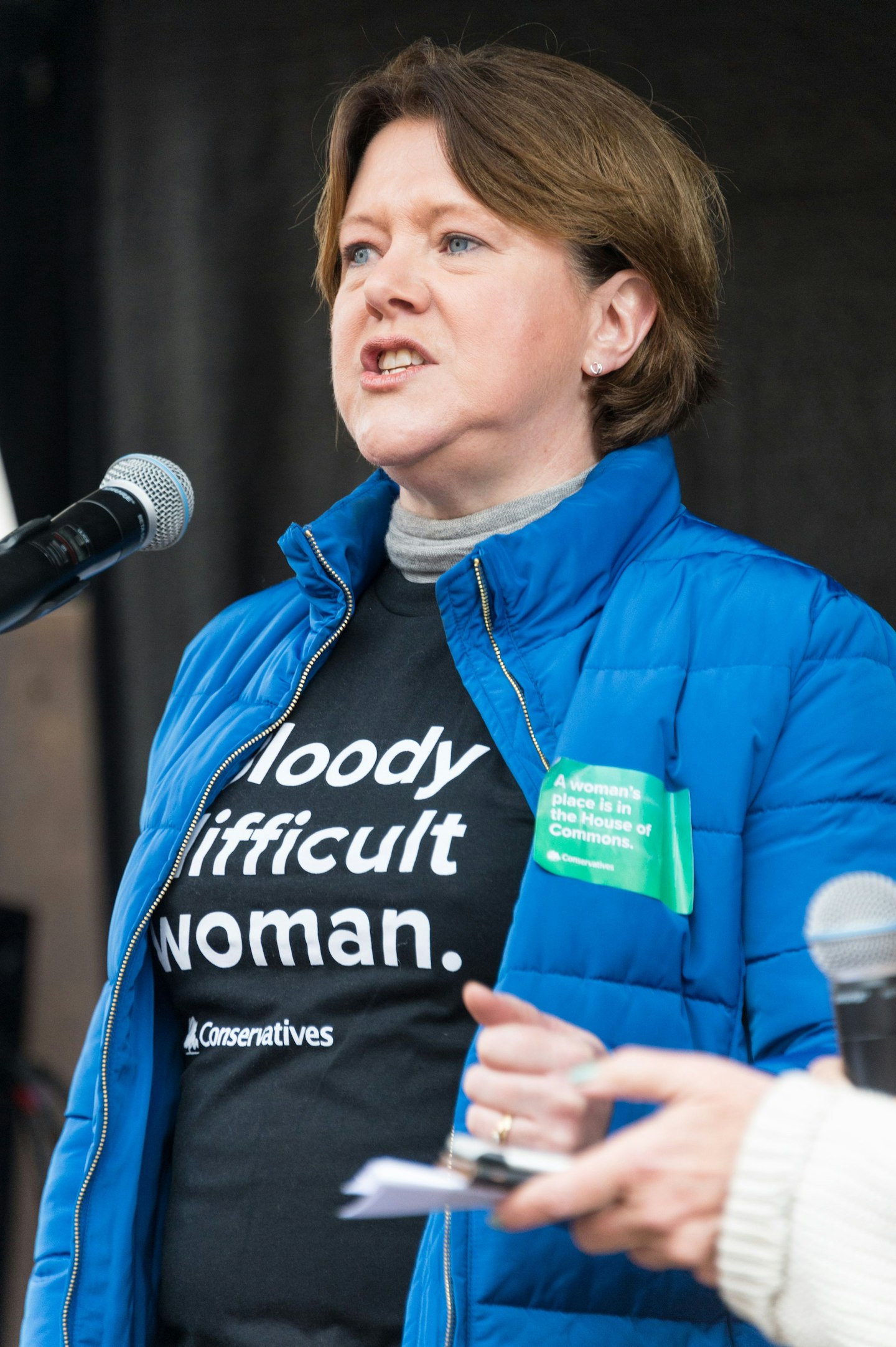 7 of 10
7 of 10Maria Miller, 54, Basingstoke Conservative MP
It was off the back of the upskirting bill that Maria Miller and Jess Phillips have met with Wera Hobhouse in an attempt to include a revenge porn amendment. It would ensure there was a blanket ban on voyeuristic images regardless of the intention in taking it, as the MPs feared people would attempt to bend the wording of the upskirting law to avoid conviction by arguing they took the image with no intention of causing distress. They also wanted to introduce an amendment that would ban false pornographic images, in which faces are photoshopped onto explicit images. However, they were told it was impossible to introduce further amendments. This comes after Love Island stars Zara McDermott and Laura Anderson became victims of revenge porn this week.
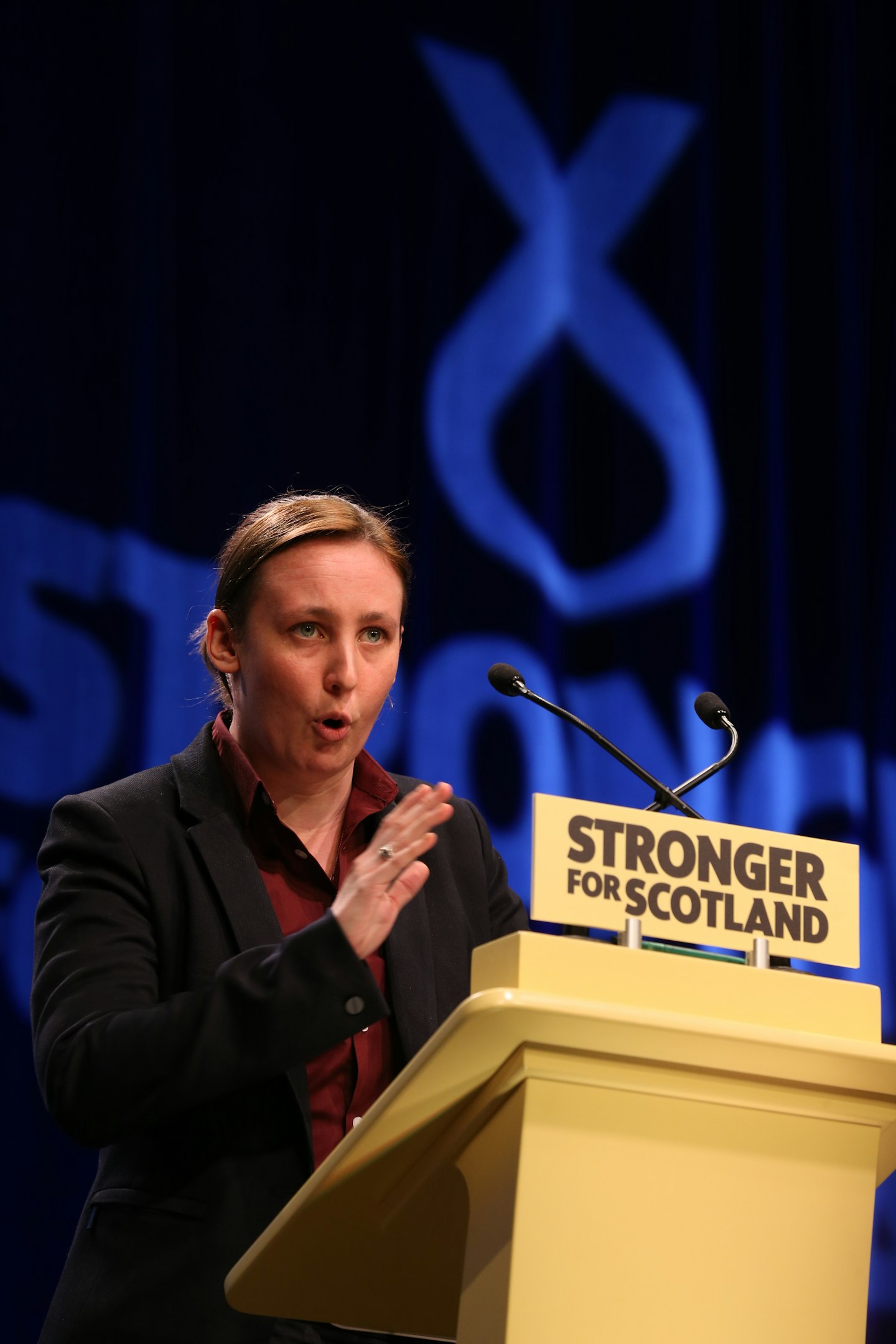 8 of 10
8 of 10Mhairi Black, Paisley and Renfrewshire South SNP MP
As part of the discussion about classing misogyny as a hate crime, Mhairi Black spoke out about the misogynistic and homophobic abuse she receives online every day. She also asked parliament to reflect on their own environment, stating, 'Only a few weeks ago I was physically pressed up against a Member (of Parliament) in the voting lobby who is accused of sexual misconduct because there's so little room.'Acknowledging she has the 'same right and influence as any other elected man', she spoke up for the female staff who aren't in her position.
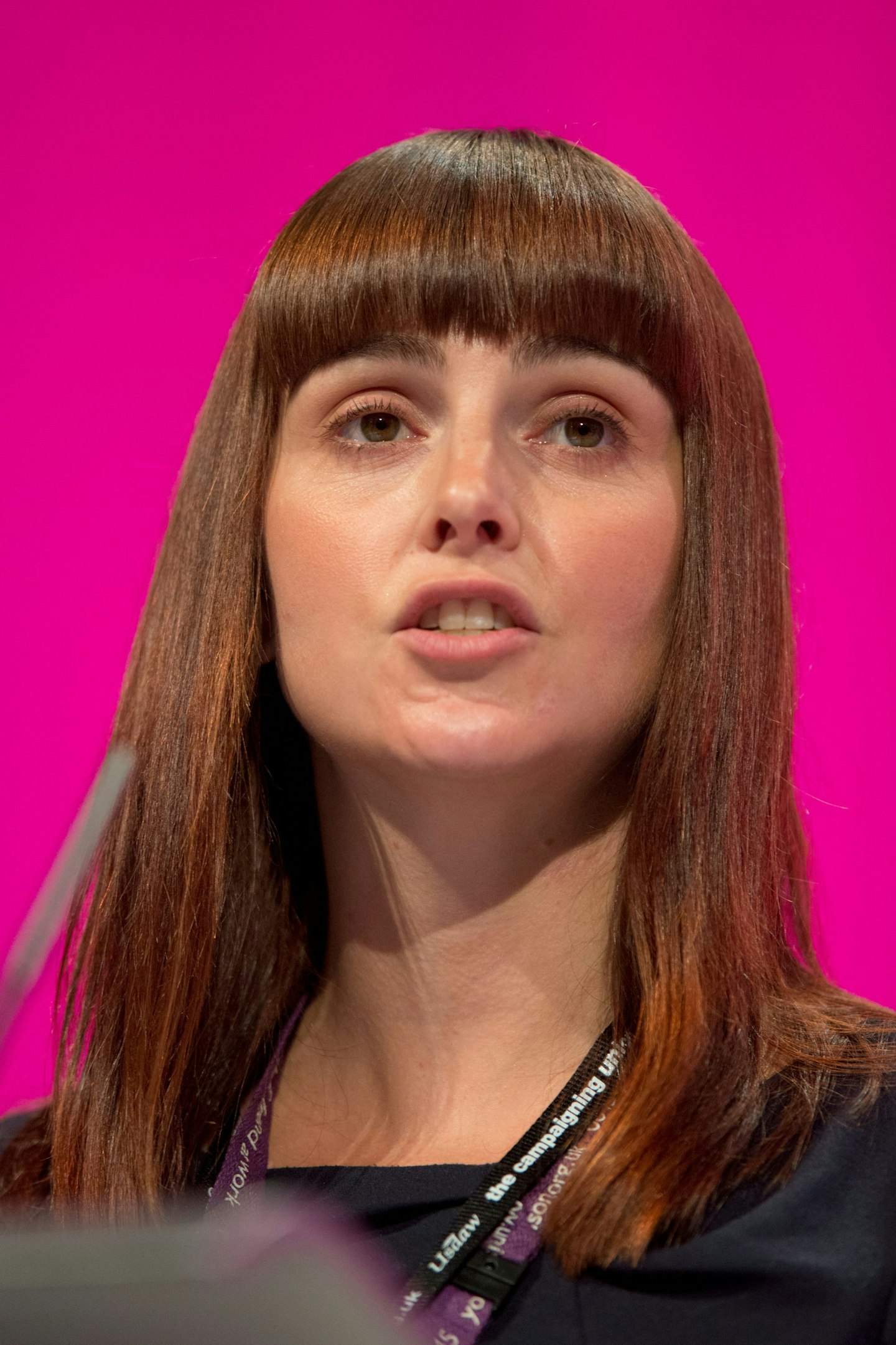 9 of 10
9 of 10Melanie Onn, 39, Great Grimsby Labour MP
Leading the charge to make misogyny a hate crime, Melanie highlighted the 'link between low-level harassment of women and more serious sexual assaults' that was found by Westminster's all-party group on domestic violence. In her constituency, the rate of domestic violence is particularly high. As a result, she has called for a law change to have misogynistic acts such as wolf-whistling, leering and sexual comments in public to be made a criminal offence.
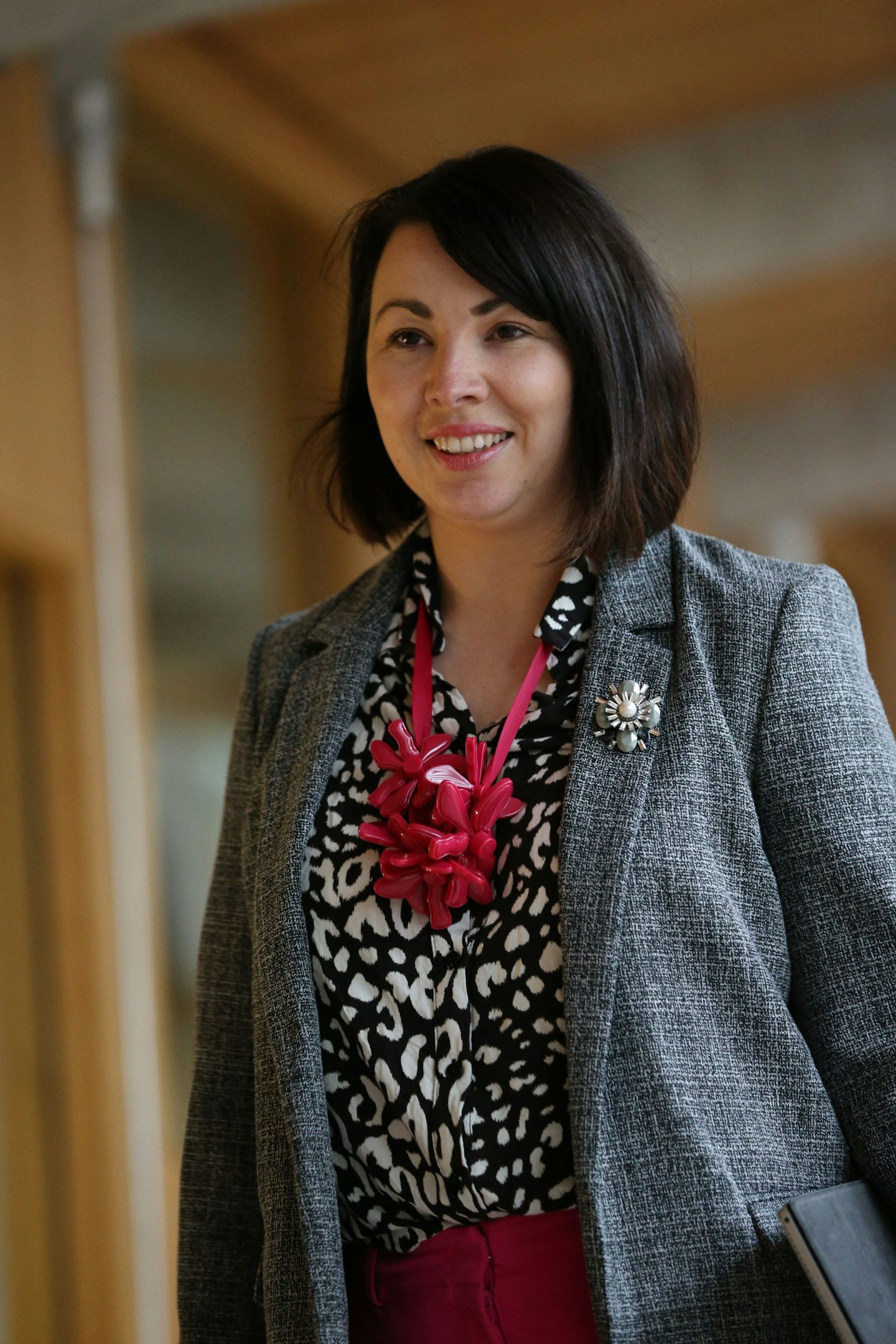 10 of 10
10 of 10Monica Lennon, 37, Central Scotland Scottish Labour MSP
Monica introduced a Member's Bill into Scottish parliament that would see the creation of free universal access to sanitary products. Proposing also that schools, colleges and universities provide free sanitary products in their toilets, she led the campaign that stands to end period poverty in Scotland.
